(979 products available)















































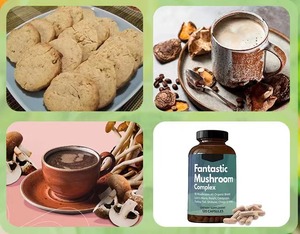





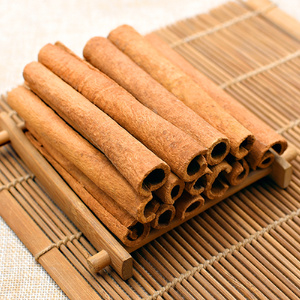









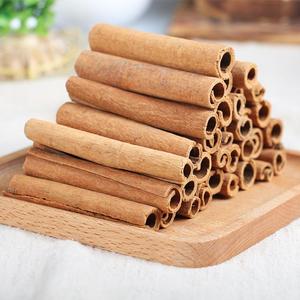
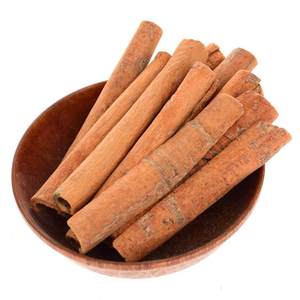

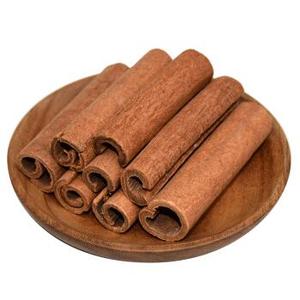
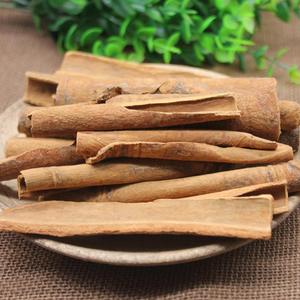
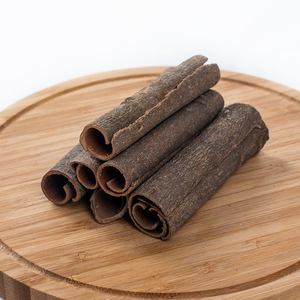


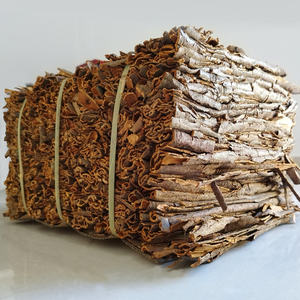

















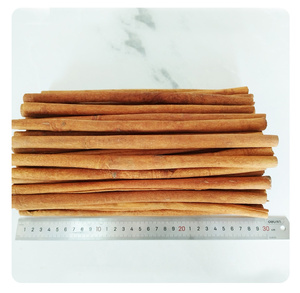





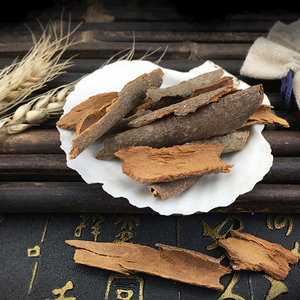




























































































































Quills or Rolls
The most characteristic type of Ceylon cinnamon is the quills or rolls. This type of cinnamon is developed from the inner bark of the Cinnamomum verum tree. The outer bark has to be scraped off to thin it. Only the inner portion is then allowed to dry and roll up into what is known as quills or a cinnamon roll. These have a fine, smooth texture and are classified as the highest quality of cinnamon.
Ground Cinnamon
Ground Ceylon cinnamon is simply the quills or rolls that have been powdered and milled to a fine consistency. It is usable as a staple cinnamon in many food and even beverage applications due to its rich and aromatic flavor. Buyers should be advised though to check for the quality of the ground Ceylon cinnamon, as it can be hard to tell the difference between it and Cassia cinnamon when ground.
Cinnamon Sticks
Cinnamon sticks Ceylon are the same as quills or rolls, just cut to different lengths. They can be used whole or ground to provide different intensities of flavor. They are commonly applied in baking, cooking, and even as a stirrer for drinks.
Cinnamon Powder
Ceylon cinnamon powder is made from grinding the cinnamon rolls into a fine powder. It is mostly applied in cooking, baking, and beverages where view or color is not too significant.
Organic Ceylon Cinnamon
Ceylon cinnamon can be labeled as organic if it is developed using organic farming practices. These are primarily retailers who market it as a healthier and more natural alternative to non-organic cinnamon.
Ceylon Cinnamon Leaf Oil
As a byproduct of the Ceylon cinnamon leaf extraction process, Ceylon cinnamon leaf oil is the oil that is derived from the leaves of the Cinnamomum verum tree. It is more potent in some compounds than bark oil, as well as included in aromatherapy and health products.
Ceylon Cinnamon Bark Oil
This is another type of essential oil obtained from the Ceylon cinnamon bark. It is well recognized for its powerful antioxidant and antibacterial properties. It can therefore be commonly found in cosmetics, medicinal products, and natural fragrances.
Visual Appearance
One of the most discernable quality features between Ceylon and Cassia cinnamon is the number of layers in the cinnamon rolls. True Ceylon cinnamon has very thin quills with multiple folded layers resembling a cigar. In contrast, Cassia has thick quills with only a few simple folded layers. Buyers can therefore check the appearance of the cinnamon sticks to tell which one it is.
Smell
Another way of differentiating between Ceylon and Cassia cinnamon is the aromatic smell they both emit. Ceylon cinnamon emits a sweet and delicate fragrance while Cassia has a more pungent and spicy smell because of the higher concentration of cumulative oil near the outer bark.
Taste
Also, Ceylon cinnamon has a subtle, sweet flavor with citrusy undertones. In comparison, the flavor of Cassia is much stronger, spicier, and slightly bitter. Customers can do a simple taste test or check what the product is labeled as in order to get the suitable type for their needs.
Price
As a rule of thumb, the price of Ceylon cinnamon will be higher than that of Cassia due to its better flavor, quality, and health benefits. If buyers come across a pack of ground cinnamon that is cheap, they should be wary that it is most likely Cassia cinnamon and not Ceylon.
Certification
To make sure that they are getting the real deal, buyers interested in wholesale Ceylon cinnamon should consider suppliers who are okay with providing them documents like a certificate of authenticity or origin. Ceylon cinnamon is harvested exclusively from the Cinnamomum verum tree found in Sri Lanka and a small part of southwestern India. If the cinnamon is coming from any other region, it could be Cassia cinnamon instead.
Checking for Coumarin Content
Coumarin is an organic chemical compound that is present in varying degrees in different types of cinnamon. It is has been known to cause detrimental health effects like liver damage when consumed in large amounts. Ceylon cinnamon contains very small amounts of Coumarin which are generally deemed safe for consumption. In contrast, Cassia cinnamon contains high amounts of Coumarin and is therefore harmful. Buyers should make sure that the Ceylon cinnamon they are buying has a Coumarin content label.
Antioxidant properties
Ceylon cinnamon is high in powerful antioxidants such as polyphenols and proanthocyanidins that protect the body cells from damage by free radical scavengers. The antioxidants work by neutralizing the harmful effect of these free radicals, thereby preventing oxidative stress, which can lead to chronic diseases such as cancer, heart problems, and neurodegenerative diseases.
Anti-inflammatory properties
The natural chemicals contained in Ceylon cinnamon work to fight body inflammation and inhibit the activity of inflammatory cells and the associated release of inflammatory mediators. This is helpful to people with inflammatory conditions such as arthritis and even celiac disease as well as those looking to improve their overall immune system.
Blood Sugar Control
Ceylon cinnamon has been found to help lower blood sugar levels by increasing insulin sensitivity and slowing the absorption of carbohydrates from the gut. This makes it highly beneficial for diabetics and especially type 2 diabetics who are dealing with insulin resistance.
Antimicrobial Properties
Ceylon cinnamon is high in essential oils such as cinnamaldehyde that help fight infections by inhibiting the growth of bacteria, viruses, and fungi. It has therefore traditionally been used as a natural preservative for foods and in the treatment of infections and illnesses.
Improved Heart Health
Some studies suggest that Ceylon cinnamon may help lower cholesterol levels, reduce arterial plaque buildup, and improve lipid profiles. This therefore helps to minimize the risk of cardiovascular diseases such as heart attacks and strokes while improving overall heart health.
Weight Management
Ceylon cinnamon helps boost metabolism, increase thermogenesis and regulate appetite, all of which are important aspects of weight control. The blood sugar regulation also helps to prevent unnecessary cravings, making it easier to maintain a healthy weight or lose some when the need arises.
Improved Brain Function
Ceylon cinnamon has neuroprotective properties that can help reduce the risk of neurodegenerative diseases such as Alzheimer's and Parkinson's. Some of its components may improve cognitive function, enhance memory and learning, and therefore a superfood for overall brain health.
Cooking and Baking
One of the most popular uses of Ceylon cinnamon is in cooking and baking. Its sweet, delicate flavor adds warmth to a wide range of both sweet and savory dishes. Ceylon cinnamon can therefore commonly be found in the ingredients of baked goods like cinnamon rolls, pies, cakes, and cookies. Ceylon sticks can also be added to stews, curries, and rice dishes, especially in South Asian cuisine, to enhance the overall flavor profile.
Spiced Beverages
Ceylon cinnamon quills are a staple ingredient in spiced beverages. It is used to make chai tea, flavored coffees, and hot chocolate by infusing the sticks and adding a warm, comforting spice. Ground Ceylon cinnamon can also be sprinkled on top of lattes, cappuccinos, or smoothies for extra flavor.
Breakfast Dishes
Add ground Ceylon cinnamon to oatmeal, yogurt, or smoothie bowls for a flavorful and aromatic boost every morning. It can also be sprinkled onto toast with sugar or butter for a quick and delicious cinnamony treat.
Sweet and Desserts
Ceylon cinnamon is commonly applied in desserts, enhancing the flavors of puddings, custards, cakes, and cookies. It can be incorporated into pie fillings, like apple or cherry, to elevate the natural sweetness with a hint of warm spice. Ceylon sticks are the ideal ingredient for making cinnamon rolls or cinnamon swirls in pastries due to their fine texture and delightful aroma.
Health and Wellness
Ceylon cinnamon is highly valued for its potential health benefit properties. It can therefore be prepared as a simple herbal tea by steeping Ceylon cinnamon sticks in hot water, which can be drank to help with digestion, inflammation, and to boost the immune system. Ceylon cinnamon is also commonly added to natural remedies for colds, flu, and respiratory issues due to its antimicrobial properties.
Aromatherapy and Rituals
The essential oil extracted from Ceylon cinnamon bark is commonly used in aromatherapy for its warm and rich scent that helps with relaxation, mental clarity, and stress reduction. Ceylon cinnamon can also be added to homemade candles, incense, or potpourri for a soothing, cozy fragrance that freshens the air and creates a calming ambience.
DIY Rituals or Home Remedies
Ceylon cinnamon is a powerful antibacterial and can therefore be mixed with honey and other ingredients to form natural face masks for glowing and clear skin. When diluted with carrier oils, Ceylon cinnamon essential oil can be paired with other oils and applied to the scalp and hair to help with dandruff and stimulate hair growth. Due to its warming properties, Ceylon cinnamon can be infused into DIY candles and other home fragrances for a long-lasting, cozy scent.
Growing Demand for Organic and Natural Products
The demand for Ceylon cinnamon as an organic and natural product is growing, especially in the health and wellness industry and among consumers who are looking for natural remedies and spices. This trend is however being driven by the increasing concern of pesticide and chemicals uses in agriculture as well as the health benefits associated with Ceylon cinnamon.
Increased Use in Plant-based and Gluten-Free Products
Ceylon cinnamon is distinguished for its sweet and delicate flavor, making it highly applicable in gluten-free baking recipes, including gluten-free breads, muffins, and pancakes. This is particularly relevant with the rising popularity of gluten-free diets and plant-based food and beverages beyond surface retrials to become a key flavoring ingredient in vegan substitutes for dairy and even in meats and sausages.
Rise of E-commerce and Direct Sourcing
There is increasing prominence of online trading platforms and direct sourcing in spice trade, including Ceylon cinnamon. This has enabled both businesses and buyers to reach cinnamon farmers and suppliers directly, thereby reducing the number of middlemen and making the supply chain more transparent and efficient.
Increased Popularity of Cinnamon-based Supplements
As people become aware of the health benefits of cinnamon, it is becoming a common ingredient in dietary supplements such as capsules and powders intended for blood sugar regulation, weight loss, and general wellness. Ceylon cinnamon is especially becoming popularly valued in this trend for its low Coumarin content and high antioxidant properties.
Cinnamon as a Natural Flavoring Agent
Ceylon cinnamon is being increasingly used as a clean-label flavoring agent in a wide range of food and drink products with consumers becoming more demanding about product transparency and the quality of ingredients used. With the rising costs of artificial flavoring due to inflation and health concerns associated with it, manufacturers are turning to Ceylon cinnamon as a cost-effective yet high-quality and healthy flavoring alternative.
Here are some common Ceylon cinnamon questions and their answers.
What is Ceylon cinnamon and how is it different from other types of cinnamon?
Ceylon cinnamon, also known as “true cinnamon,” is made from the inner bark of the Cinnamomum verum tree which is native to Sri Lanka and a small part of South India. It is different from Cassia cinnamon which is the most commonly available type of cinnamon in stores and markets. Cassia is obtained from the bark of other Cinnamomum tree species and has a thicker, rougher texture with a stronger, spicier flavor and higher Coumarin content. Ceylon cinnamon has a smoother texture, sweeter and more delicate flavor, and lower Coumarin content which makes it better for health.
What are the health benefits of Ceylon cinnamon?
Ceylon cinnamon is rich in antioxidants and has anti-inflammatory, antimicrobial, and blood sugar-regulating properties. It is therefore helpful to people with diabetes, heart diseases, and even those with digestive issues while boosting the immune system and helping to improve overall skin and respiratory health.
How can Ceylon cinnamon be used in cooking and baking?
Ceylon cinnamon can be used in a wide range of both sweet and savory recipes. It can be added to baked goods like pies, cakes, and cookies, and incorporated into spiced drinks like chai and lattes. It can also be sprinkled on oatmeal, yogurt, or smoothies for added flavor.
Is Ceylon cinnamon more expensive than other types of cinnamon?
Yes, it is more expensive as it is harder to source and has a more complex and longer harvesting and processing method that yields lesser amounts. The higher price is also worth it when taking into account its superior quality, flavor, and numerous health benefits.
How can Ceylon cinnamon be stored to maintain its freshness?
Ceylon cinnamon should be kept in an airtight container away from direct sunlight, heat, and moisture in order to preserve its flavor, aroma, and potency. Ground Ceylon cinnamon should be stored similarly in an airtight container, preferably in a cool, dark place or in the pantry.